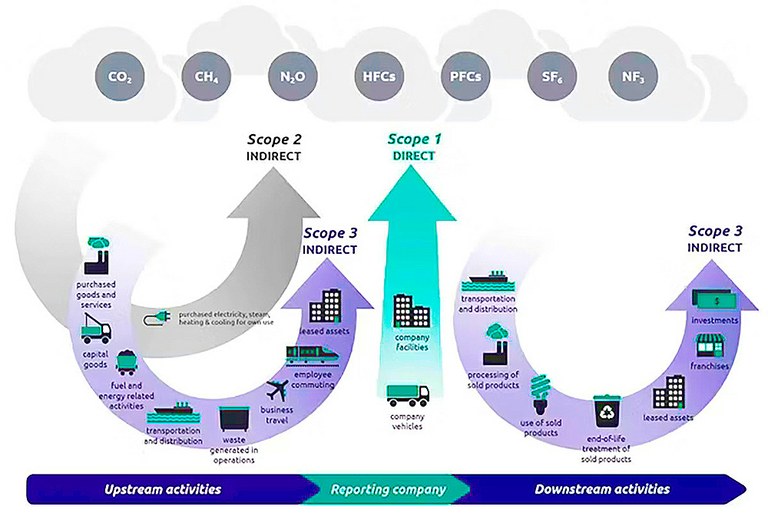ULMA joins the commitment to move towards climate neutrality by 2050
Implementing circularity in our business project, as well as our adherence to the goal of achieving climate neutrality by 2050, has a direct impact on the development and application of technology, research and innovation in our business and in the design of our products, solutions and services.
Firstly, circularity is implicit in the design of our systems, reducing the amount of raw materials required for their manufacture. Secondly, the scaffolding, shoring and formwork systems we rent to our clients are carefully maintained and cared for, thus extending their life span. We also have Zero Waste Certification in our factory and our main logistics warehouse located in Ajofrín, Toledo, which guarantees that the organisation uses more than 90% of its waste for recovery, minimising the amount of waste we generate. The FSC (Forest Stewardship Council) and PEFC (Programme for the Endorsement of Forest Certification) chain of custody certifications, which cover all ULMA Construction work centres located in Spain, guarantee the origin of the wood marketed by ULMA in three-layer plywood, VM-20 beams and phenolic plywood, and certify compliance with the requirements of traceability of forest products to sustainable sources. These certificates contribute to mitigating deforestation and the loss of forest mass, which are the main natural carbon sinks of the planet and are essential for the transformation of carbon into oxygen, having a great impact on the sustainability of the planet, both at an environmental, economic and social level.
Achieving the objective of reducing greenhouse gas emission sources entails defining milestones and concrete actions aimed at getting as close as possible to the net zero target. The zero carbon footprint, carbon neutrality, net zero or climate neutrality implies the achievement of a net zero greenhouse gas (GHG) emission result that occurs when the emission of gases into the atmosphere is absorbed by natural or man-made processes. The concept of climate neutrality was disseminated in the Kyoto Protocol of the United Nations Framework Convention on Climate Change (UNFCCC) created for the reduction and stabilisation of GHG emissions into the atmosphere as a measure to combat global warming and climate change.
In accordance with the stipulations of the UNE EN ISO 14064:201 standard, the initial step in ULMA's strategy consisted of calculating the organisational carbon footprint for scopes 1, 2 and 3, which refer to the different categories of greenhouse gas emissions defined by the Greenhouse Gas Protocol. According to the protocol, Scope 1 emissions are those directly caused and controlled by the company as a consequence of its activity. Scope 2 emissions refer to indirect emissions created by the production of the energy that an organisation contracts. Whereas Scope 3 emissions, although they can also be considered indirect, refer to emissions produced by the clients who use the company's products or by the suppliers who manufacture the products used by the company, so their measurement involves monitoring the activities of the entire business model or value chain, from suppliers to end users. According to the results obtained by ULMA in its measurement, it is precisely in Scope 3 emissions where the impact is greatest.
In addition to the calculation of the carbon footprint, both in the head office and in ULMA's different subsidiaries, measures have been adopted to reduce Scope 1 and 2 emissions through the implementation of projects such as the installation of photovoltaic systems contributing to the generation of renewable energy (266,787 kWh generated in 2023 at our facilities), the replacement of lighting systems with LED technology reducing electricity consumption, the replacement of combustion processes with electricity (switching from diesel to electric forklifts or from combustion to hybrid cars), the implementation of energy consumption monitoring systems, the purchase of electricity from renewable sources or the application of systems for the use of residual cold/heat, aerothermal air-conditioning, the use of more efficient machinery and equipment, as well as the activation of automatic shutdown systems, and so on. These energy-related actions will be complemented by other actions aimed at reducing emissions from the consumption of raw materials, transport, waste, etc.
ULMA's adherence to the UN Global Compact is another firm step that consolidates our commitment through compliance with the Ten Principles and the Sustainable Development Goals (SDGs), which aim to encourage and promote a more inclusive, sustainable and prosperous business fabric, by contemplating measures to limit temperature increases and other effects of climate change, and establishing the reduction of the carbon footprint as one of the strategic priorities to achieve a sustainable future.



